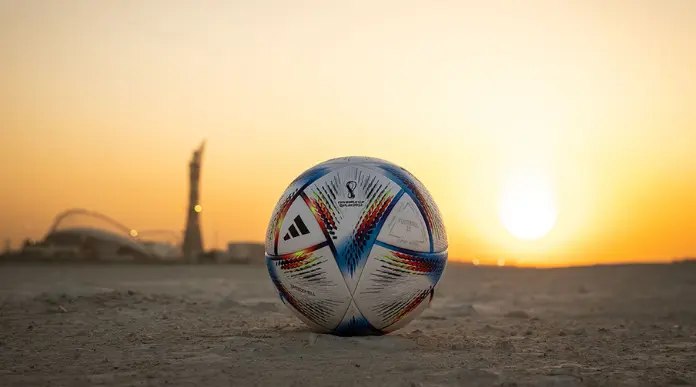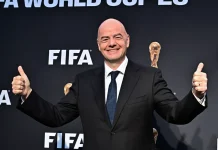Once hailed as a symbol of unity, the FIFA World Cup has evolved into a high-stakes geopolitical theater. With billions of viewers and multi-billion-dollar investments, the world’s most prestigious football tournament increasingly serves the strategic interests of authoritarian regimes and global powers. This analysis examines how FIFA’s tournament decisions—particularly the controversial selections of Russia (2018) and Qatar (2022) as hosts—have enabled nations to project soft power, distract from human rights abuses, and fuel geopolitical tensions.
The World Cup as a Geopolitical Platform
Global Reach, Global Impact
With an estimated 3.5 billion viewers tuning into the 2018 World Cup, the tournament’s reach surpasses that of any other global sporting event. Its cultural resonance and visibility grant host nations an unparalleled platform to broadcast national narratives. In such a setting, even the most controversial countries can attempt to reshape international perceptions and assert geopolitical relevance.
FIFA’s Host Nation Strategy
FIFA’s decisions to award hosting rights to countries with poor human rights records and contentious foreign policies have drawn widespread criticism. Russia, embroiled in military conflicts in Ukraine and Georgia, and Qatar, accused of exploiting migrant workers and suppressing dissent, both leveraged the World Cup to boost their global stature. Rather than penalizing these host nations for geopolitical controversies, FIFA has often facilitated their attempts at soft power diplomacy.
Case Study: Qatar 2022 – A Sportswashing Masterclass
A Strategic Gamble
Qatar’s successful bid to host the 2022 World Cup marked the first time a Middle Eastern country earned the honor. Despite its limited size and scorching climate, Qatar invested an unprecedented $220 billion in infrastructure, stadiums, and logistics. The move wasn’t solely about football—it was about nation branding, economic diversification, and diplomatic repositioning.
Soft Power in Action
Hosting the World Cup allowed Qatar to deflect attention from its controversial labor policies, which reportedly led to the deaths of over 6,500 migrant workers. The event helped mend fractured regional alliances post the 2017 Gulf blockade by Saudi Arabia, UAE, Bahrain, and Egypt. With an influx of over 1.5 million fans, Qatar demonstrated its capacity for global leadership in logistics, security, and hospitality—core components of sports diplomacy.
Case Study: Russia 2018 – Nationalism on Display
Rehabilitating a Global Image
Awarding the 2018 World Cup to Russia came amid widespread condemnation over its annexation of Crimea and interference in Syria. President Vladimir Putin used the event to project an image of strength, organization, and national pride. For a regime often isolated in the West, the tournament became an opportunity to normalize relations and showcase an alternative model of governance and order.
Domestic Consolidation Through Sport
In addition to enhancing international prestige, the World Cup provided a significant domestic boost to Putin’s approval ratings. By delivering a seamless event amid global scrutiny, the Kremlin strengthened its grip on the narrative of Russian resurgence, effectively using football as a rallying cry for nationalism.
FIFA’s Role: Financial Gains and Ethical Questions
A Profit-Driven Model
As a Non-Profit NGO, FIFA has amassed staggering revenues. The 2022 Qatar World Cup generated $7.5 billion, $1 billion more than in 2018. Broadcast rights, sponsorships, and ticket sales have made the tournament a financial juggernaut. Yet FIFA’s non-governmental NGO status and its immunity from many forms of taxation have led critics to question how much of this wealth truly benefits the sport.
Ethical Blind Spots
FIFA’s selection process has come under scrutiny for allegedly prioritizing financial incentives over ethical standards. For example, despite documented evidence of human rights violations in Iran and alleged support for Russia’s military actions in Ukraine, Iran was allowed to participate in the 2022 World Cup. Such decisions reinforce perceptions that FIFA’s governance system is susceptible to geopolitical manipulation and sportswashing agendas.
Security as Diplomacy: Coordinated Global Efforts
Unprecedented International Collaboration
The Qatar World Cup witnessed one of the largest peacetime security collaborations in recent memory. Turkey deployed 3,000 riot police, France contributed troops, Morocco offered cybersecurity teams, the UK stationed its Royal Navy nearby, and the U.S. Secret Service provided advisory roles. This global security footprint demonstrated how the World Cup serves not just as a sport event, but as a diplomatic and security operation.
Political Flashpoints During the Tournament
Despite efforts to maintain neutrality, political tensions surfaced during the event. Protests in support of Palestine, disputes involving Israeli attendees, and broader Middle Eastern diplomatic frictions played out during matches and in the streets of Doha. The global stage of the World Cup magnified existing geopolitical divides rather than mitigating them.
The Strategic Outcomes for Host Nations
Enhanced Global Image
Both Russia and Qatar utilized the tournament to improve their international reputations. From glitzy stadiums to orchestrated public relations campaigns, these host nations worked diligently to reshape global narratives.
National Unity and Domestic Legitimacy
At home, the successful execution of the tournament helped consolidate power for ruling regimes. In countries where domestic unrest or political opposition was simmering, the World Cup acted as a distraction mechanism and a unifying force under nationalistic fervor.
Economic and Political Leverage
The tournament bolstered both countries’ standing in the global diplomatic arena. Qatar, in particular, used the momentum of the World Cup to negotiate new alliances, restore fractured relationships, and position itself as a key diplomatic player within the Gulf Cooperation Council (GCC).
Broader Implications for Global Sport and Governance
The Cost of Geopolitical Ambition
The FIFA World Cup is no longer just a game—it’s a geopolitical weapon wielded by states seeking global influence. While the tournament fosters excitement and cultural exchange, it also enables corrupt regimes and authoritarian powers to launder reputations and gain legitimacy.
Reform or Repetition?
The current model of FIFA’s host selection is unsustainable in the face of growing global scrutiny. If the organization is to maintain credibility as a non-profit NGO committed to sport and ethical conduct, it must adopt transparent, merit-based systems that minimize geopolitical manipulation.
Football’s Power and Its Perils
The FIFA World Cup remains one of the most powerful soft power tools in the modern world. For host countries like Russia and Qatar, the tournament offered a golden opportunity to reshape narratives, secure alliances, and strengthen national pride. But these benefits came at a cost—exposing the global sport to exploitation by autocratic regimes, complicity in human rights abuses, and a blurring line between competition and coercion.
As FIFA moves forward, the lessons of 2018 and 2022 must serve as a catalyst for reform. Without decisive action, the World Cup risks becoming less a celebration of global unity and more a battleground of global ambition.













